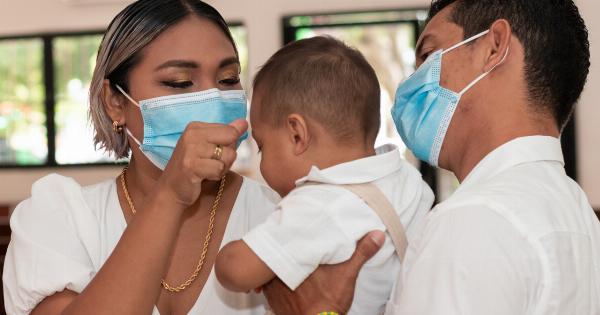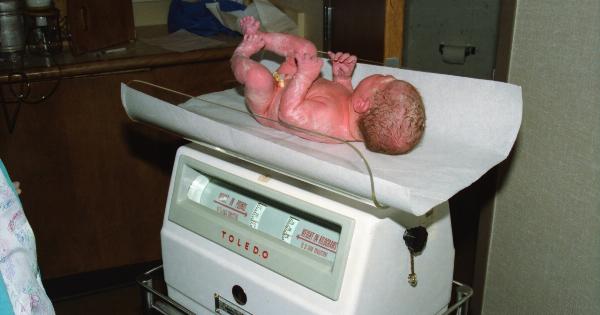Easter is a joyous holiday celebrated with family, delicious meals, and sweet treats. However, if you are expecting, it is essential to pay attention to your diet to ensure the well-being of both you and your baby.
This article will guide you through the dos and don’ts of an Easter pregnancy diet to help you make informed food choices and have a safe, healthy, and enjoyable holiday season.
1. Do Incorporate Nutrient-Rich Foods
During pregnancy, your body needs additional nutrients to support the growth and development of your baby. Make sure to include a variety of nutrient-rich foods in your Easter celebrations.
Opt for fresh fruits, vegetables, whole grains, lean proteins, and low-fat dairy products. These foods provide important vitamins, minerals, and fiber, promoting a healthy pregnancy.
2. Don’t Forget About Hydration
Staying hydrated is crucial during pregnancy, especially on festive occasions like Easter. Ensure you drink enough water throughout the day to maintain proper hydration.
Water helps to support digestion, prevent constipation, regulate body temperature, and support the amniotic fluid surrounding your baby.
3. Do Choose Healthy Cooking Methods
When preparing Easter meals, opt for healthier cooking methods such as baking, grilling, steaming, or broiling. These methods help to retain the nutrients in food and reduce the need for excessive added fats.
Avoid fried or heavily processed foods, as they tend to be high in unhealthy fats, sodium, and additives.
4. Don’t Consume Raw or Undercooked Foods
During pregnancy, it is crucial to avoid raw or undercooked foods to prevent potential exposure to harmful bacteria or parasites. Make sure all your meals are cooked thoroughly and eggs are properly cooked to reduce the risk of salmonella.
Avoid dishes like Caesar salad dressing, homemade mayonnaise, or mousse containing raw eggs.
5. Do Opt for Safe Sources of Protein
Protein is an essential nutrient required for the growth and development of your baby. However, some sources of protein may pose a risk during pregnancy. Choose lean meats, poultry, fish low in mercury, eggs, legumes, and pasteurized dairy products.
Avoid raw or undercooked seafood, deli meats, and unpasteurized cheeses, as they may expose you to harmful bacteria.
6. Don’t Overindulge in Sweets
Easter is known for its indulgent sweets and chocolates, but it’s essential to enjoy them in moderation. Excessive sugar intake can lead to weight gain and increase the risk of gestational diabetes.
Opt for healthier sweet alternatives like fruit salads, dark chocolate with higher cocoa content, or homemade treats with reduced sugar.
7. Do Incorporate Healthy Snacks
Avoid going long periods without eating by incorporating healthy snacks into your Easter celebrations. Plan ahead and pack nutritious snacks such as almonds, trail mix, yogurt, or fresh fruit to keep your energy levels stable throughout the day.
This will help prevent excessive hunger and overeating later on.
8. Don’t Ignore Food Safety
During Easter, food is often prepared in large quantities and left out for extended periods. It’s crucial to prioritize food safety to prevent foodborne illnesses.
Refrigerate leftovers promptly, avoid leaving perishable foods at room temperature for too long, and discard any food that has been sitting out for more than two hours.
9. Do Communicate Your Dietary Needs
If you will be celebrating Easter with family or friends, don’t hesitate to communicate your dietary needs. Inform them about your pregnancy and any restrictions you may have.
This will ensure everyone is aware of your specific requirements and can accommodate your needs, making the celebration stress-free and enjoyable.
10. Don’t Forget to Treat Yourself
Pregnancy can be challenging, and indulging in a treat every now and then is important for your mental well-being. Allow yourself an occasional treat on Easter, but remember to exercise moderation.
Enjoy a small portion of your favorite dessert or treat without guilt, savoring the moment and the joy of the holiday.
By following these dos and don’ts of an Easter pregnancy diet, you can have a healthy and enjoyable holiday while ensuring the well-being of both you and your baby.
Prioritize nutrient-rich foods, stay hydrated, practice safe cooking methods, and communicate your dietary needs to make this Easter a special and memorable one.


























